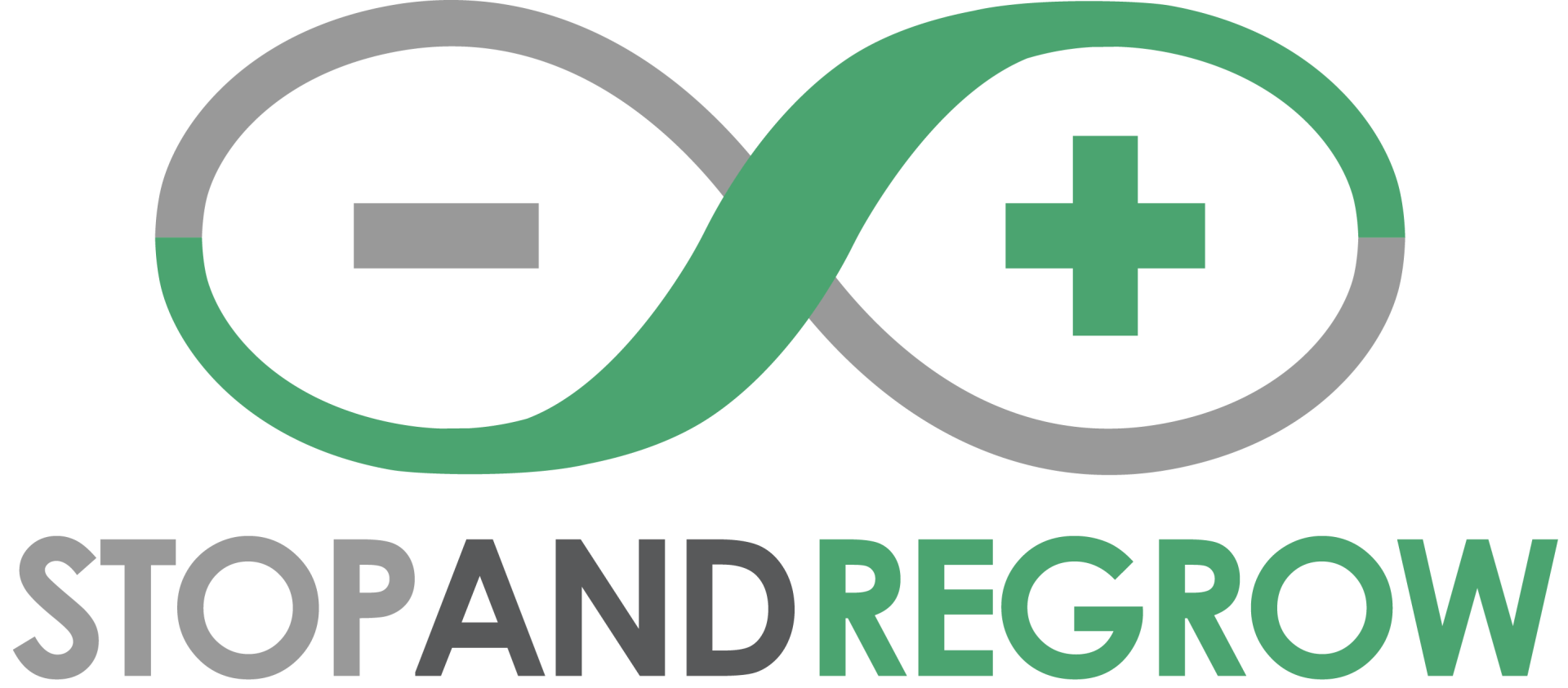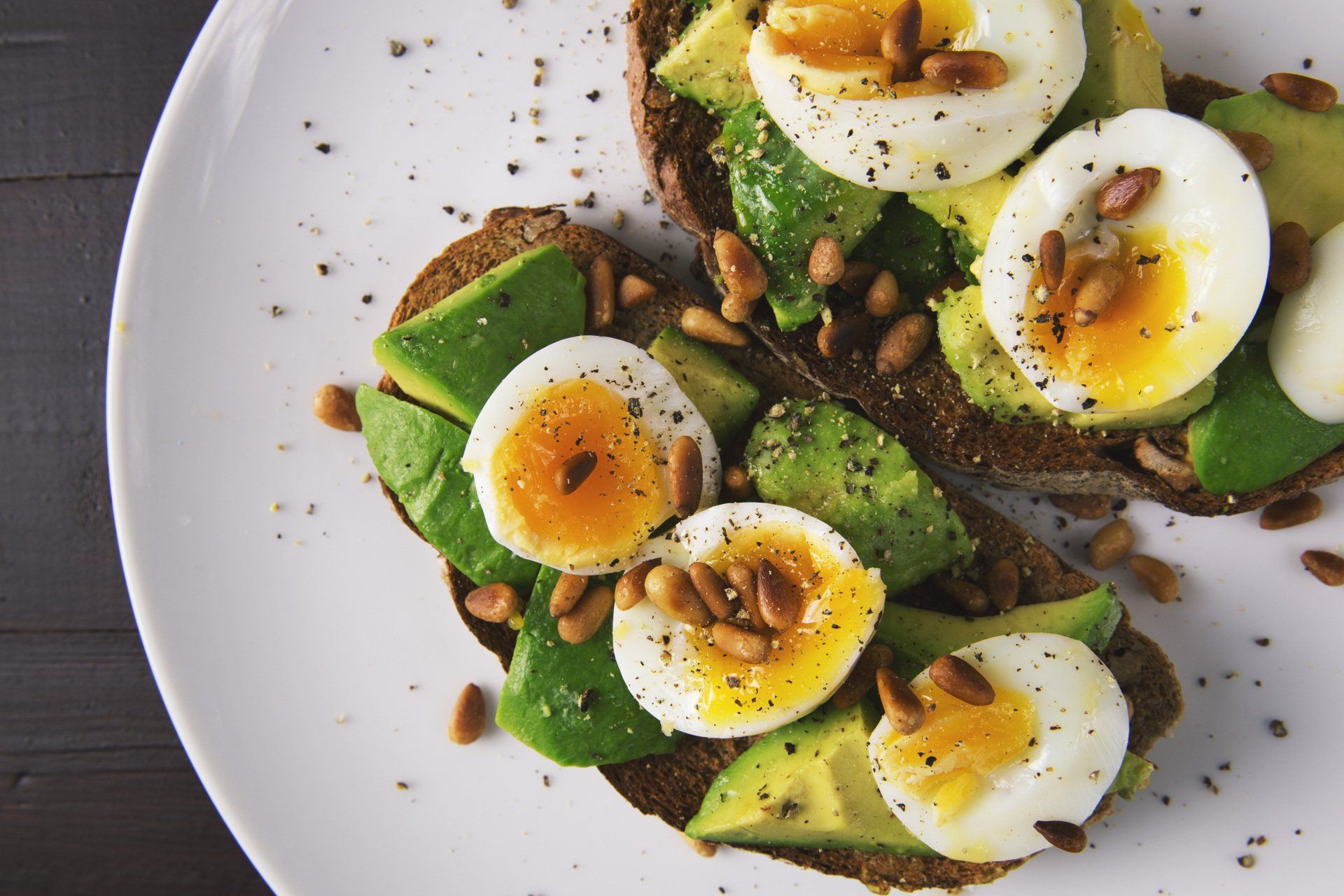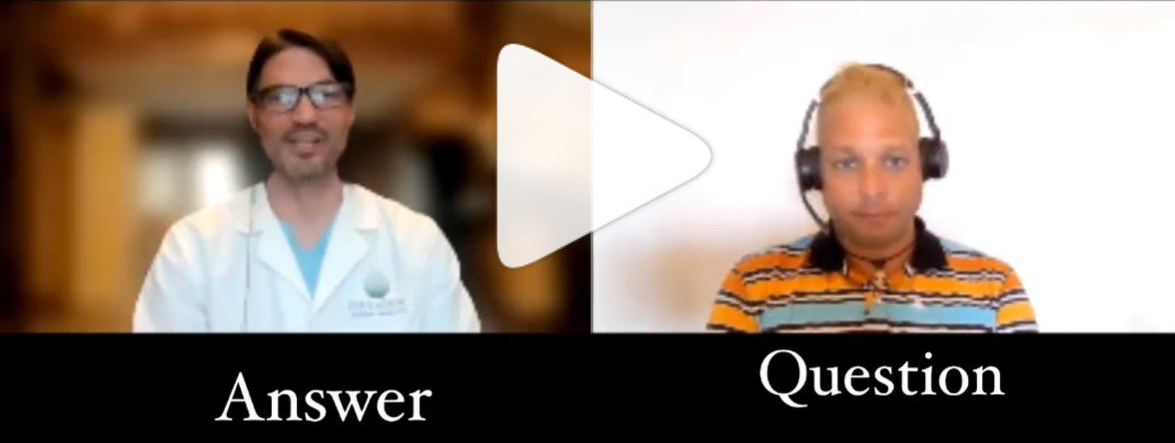Blog Post
Why Blocking DHT Is Not the Answer When It Comes To Hair Loss
The Inside Story On DHT and Its Impact On Hair Growth
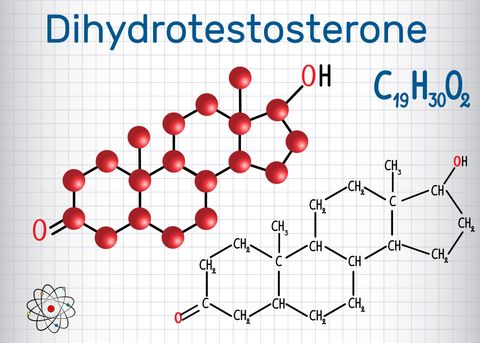
What is DHT?
DHT or Dihydrotestosterone is one of the four primary hormones that control our body’s health, vitality and mood. The other three being Total Testosterone, Free Testosterone and Estrogen.
DHT is the hormone responsible for development of male characteristics of the male embryo in the womb and then later again at commencement of puberty.
DHT is created by the enzyme 5-alpha reductase which converts Testosterone into DHT by adding additional hydrogen molecules. But let’s look even deeper at what DHT and Testosterone are made of:
- Formula for Testosterone: C19 H28 O2
- Formula for DHT: C19 H30 O2
The only difference, as you can see, are the two extra Hydrogen ions
on the DHT. You can read more about where these hydrogens come from in a previous article on this topic via the link above.
So When and How does DHT Cause Problems?
What Dr Nettles has found after reviewing many thousands of sets of labs via his Biochemical Report Card is that there is an ideal ratio of DHT in relation to the other hormones and in fact between all our hormones. When all our hormones are within these ideal ratios our bodies are balanced and operate at optimal health.
You can read more about what DHT is
and how it impacts our hair follicles
in previous articles on the topic here.
What Happens When We Are Out of Balance?
When our hormones and/or our nutritional intake become out of balance we can experience many symptoms depending on which hormones or macronutrients are too high and which are too low. Some examples besides hair loss include: fatigue, moodiness, anxiety, irritability, prostate growth leading to prostate cancer, inability to build muscle, man boobs, weight gain, diabetes, heart disease, osteoporosis, erectile dysfunction, high cholesterol, thyroid problems, fatigue and many more.
What a wonderful thing that a blood test like the Biochemical Report Card
can provide you with the knowledge (and freedom) to learn how your body works well enough to optimize it and not only feel better and improve your current quality of life but also prevent future disease.
How do our hormones become out of balance?
There are a number of reasons that our hormones become out of balance. Here are just some that we see in the Stop and Regrow office.
Food Ingredients We Eat:
• Do we bring in enough of the food ingredients we need to make the amount of hormones that are optimal?
• Do we bring in too much of certain ingredients that over stimulate the enzymes which create individual hormones such as DHT or Estrogen and cause us to become out of balance?
• Do we eat too many carbohydrates that break down to extra hydrogen ions in our system and cause problems?
Genetics:
• Our inherited genetics determine our total hormone cap or how much our bodies can make if nutrition is optimal.
• Did we inherit defects on any of the enzymes that make or convert hormones in our body?
Age:
• As we get older, the amount of total testosterone our body produces reduces over time. It is highest in our early 20’s then reduces by about 3-4% per year until there isn’t sufficient to keep us alive. The activity of the enzymes which convert this to other hormones don’t reduce however causing us to become out of balance gradually over time depending on where we started.
• Another thing that happens as we age is that our taste buds change and we lose taste for items that are not sweet. This leads people to prefer to eat more of sweeter tasting foods such as the carbohydrates which break down to hydrogen ions rather than the proteins and fats that keep our bodies balanced.
Over Supplementation:
• Hormone replacement therapy or supplementation is extremely helpful for many people in retaining healthy vitality and optimal hormone ranges. It is important however not to over supplement or problems can occur. When too much testosterone is supplemented on a regular basis the body can determine that it does not need to produce its own anymore and will shut down production (often permanently).
• Hormone supplementation without blood-work to understand exactly which hormones should be supplemented and by how much can produce unintended consequences such as increases or relative decreases in other hormones that result in imbalance.
Is There Anything That Can Be Done Naturally to Balance Our Hormones?
The answer is it depends. As you can see from above there are many very complex sets of factors that should all work together in symphony to produce your optimal biochemical balance.
The good news is that now we have Dr Nettles’ Biochemical Report Card
which can provide us feedback on all the different factors including hormones, enzymes, nutrition and other lifestyle factors so we can understand our current level of imbalance and guide how to rebalance.
So Should We Be Blocking DHT?
The short answer here is no, we do not want to block DHT production completely. We do still need some DHT, it’s just that the ratio compared to our other hormones is important.
So Should I Take Traditional DHT Blockers like Finasteride/Propecia? Will That Work to Save My Hair?
One thing to remember is that the current DHT blocking medications available commercially were created with the intention to block DHT completely in people already diagnosed with prostate cancer. One of the “side effects” of having more DHT than you need is prostate growth which leads eventually to prostate cancer once the prostate gets large enough. Just like we block Estrogen completely in women who have breast cancer.
In fact, the hair related properties of Propecia were discovered as a side effect for men being treated for prostate cancer. Propecia was never created intentionally to treat hair loss.
While this may be one way to slow down or retard the progression of hair loss, many men find that over time it becomes less effective, plus the resulting imbalance that is caused by blocking production entirely results in a host of other symptoms caused by the new imbalance.
So Is There Something That Will Work to Both Stop Hair Loss and Regrow Thinning Hair?
Yes. But it’s not the same for everyone. What Dr Nettles has found is that each one of us is different and we have different levels of hormones and nutritional intake and environmental factors that impact our health. Hair loss is one of many symptoms that occur as a result of this imbalance. Our goal at Stop and Regrow is to get you optimally balanced and so healthy that your hair will regrow on its own. We just speed it along a little with a very effective hair growth stimulant that helps improve the health and size of your hair follicles.
Taking the first step to understand your hair loss is a simple one. Book your Stop and Regrow assessment
and take your biochemical report card labs
today.
Share
Tweet
Share
Mail
Recent Articles From Our Blog
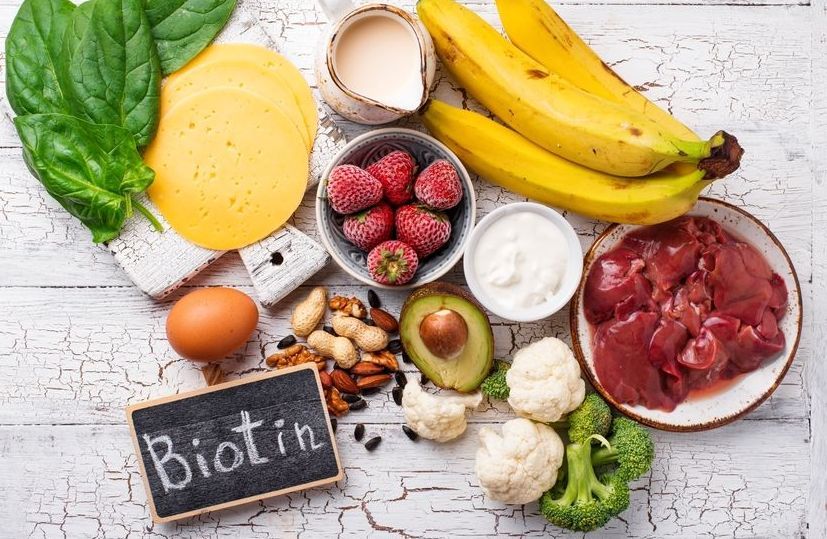
25 Dec, 2023
Biotin, often touted as a miracle solution for hair woes, is a B vitamin essential for various metabolic processes. It's frequently found in hair and nail supplements, with many products claiming "biotin for hair" as a key ingredient for hair regrowth. But what does science really say about it?
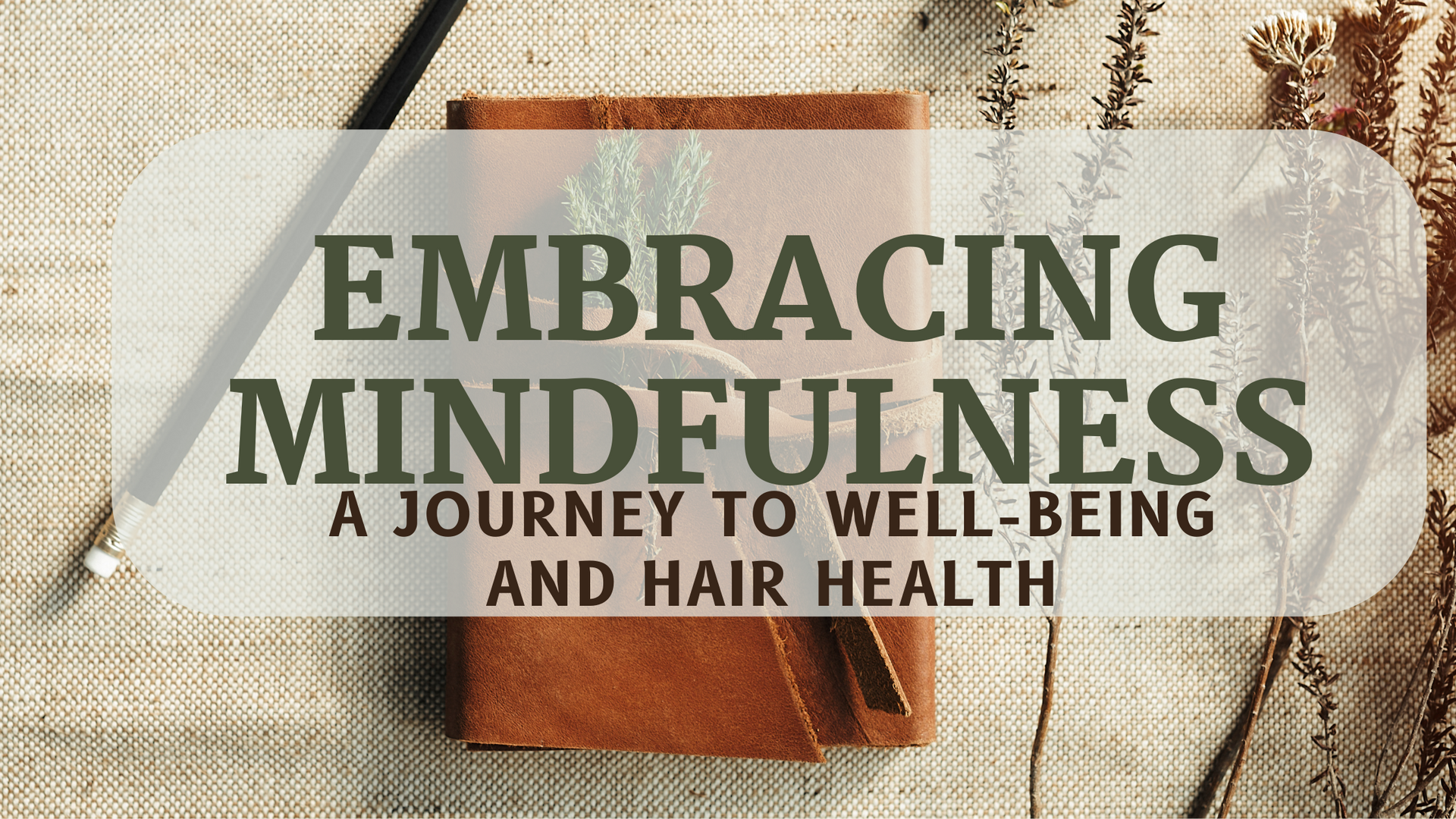
By Michelle Parrinello
•
05 Dec, 2023
In our fast-paced world, stress has become a familiar yet unwelcome companion. It not only affects our mental and physical health but also manifests in unexpected ways, including hair loss.
For those battling hair thinning or loss, understanding the connection between stress and hair health is crucial. This is where mindful self-care steps in as a beacon of hope.

02 Dec, 2023
Why Nutrition Matters for Hair Health?
Nutrition isn't just about keeping your body fit and healthy; it's also key to your hair's health. Just like any other part of your body, your hair needs the right nutrients to grow strong and healthy. What you eat has a big impact on the strength, growth, and volume of your hair.

01 Nov, 2023
In the fast-paced world we inhabit, stress is a constant, lurking in both our professional and personal realms. While the mental health implications of chronic stress are well-discussed, its physical manifestations are often overlooked. One such overlooked area is hair health. Prolonged stress doesn't just leave us feeling frazzled; it can also lead to significant hair loss and impede its regrowth.

22 Oct, 2023
By combining cutting-edge science and age-old natural remedies, holistic hair care represents a revolutionary approach, promising lustrous, healthy hair. This comprehensive guide dives into the essence of holistic hair care, merging insights from holistic therapies with current scientific perspectives
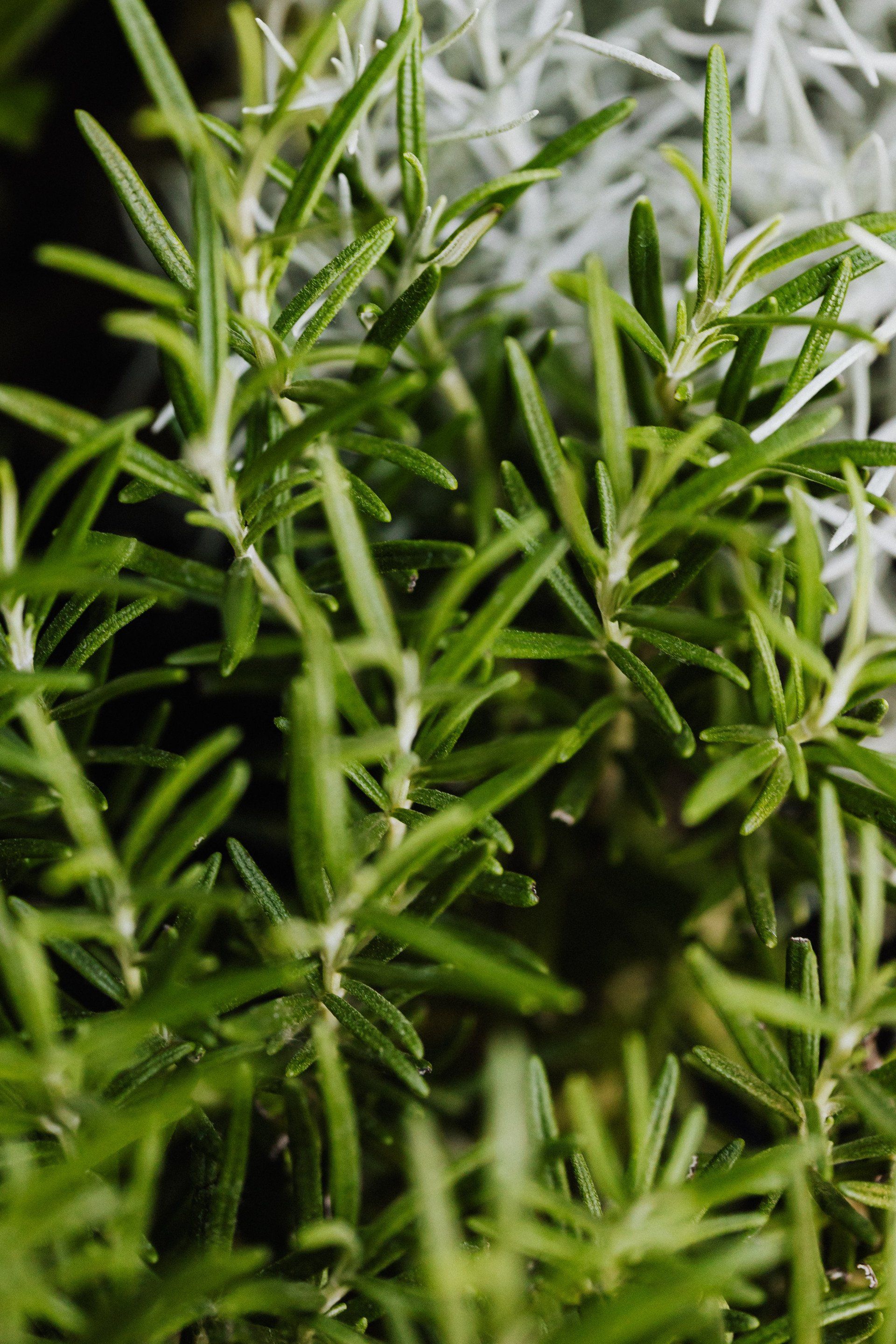
25 Sep, 2023
In the quest to comprehend hair loss's multifaceted nature, inflammation has been frequently discussed. With some theorizing its role in causing hair loss, the evidence remains inconclusive. This article examines the potential relationship between inflammation and hair loss, and the buzz around rosemary oil as a remedy.
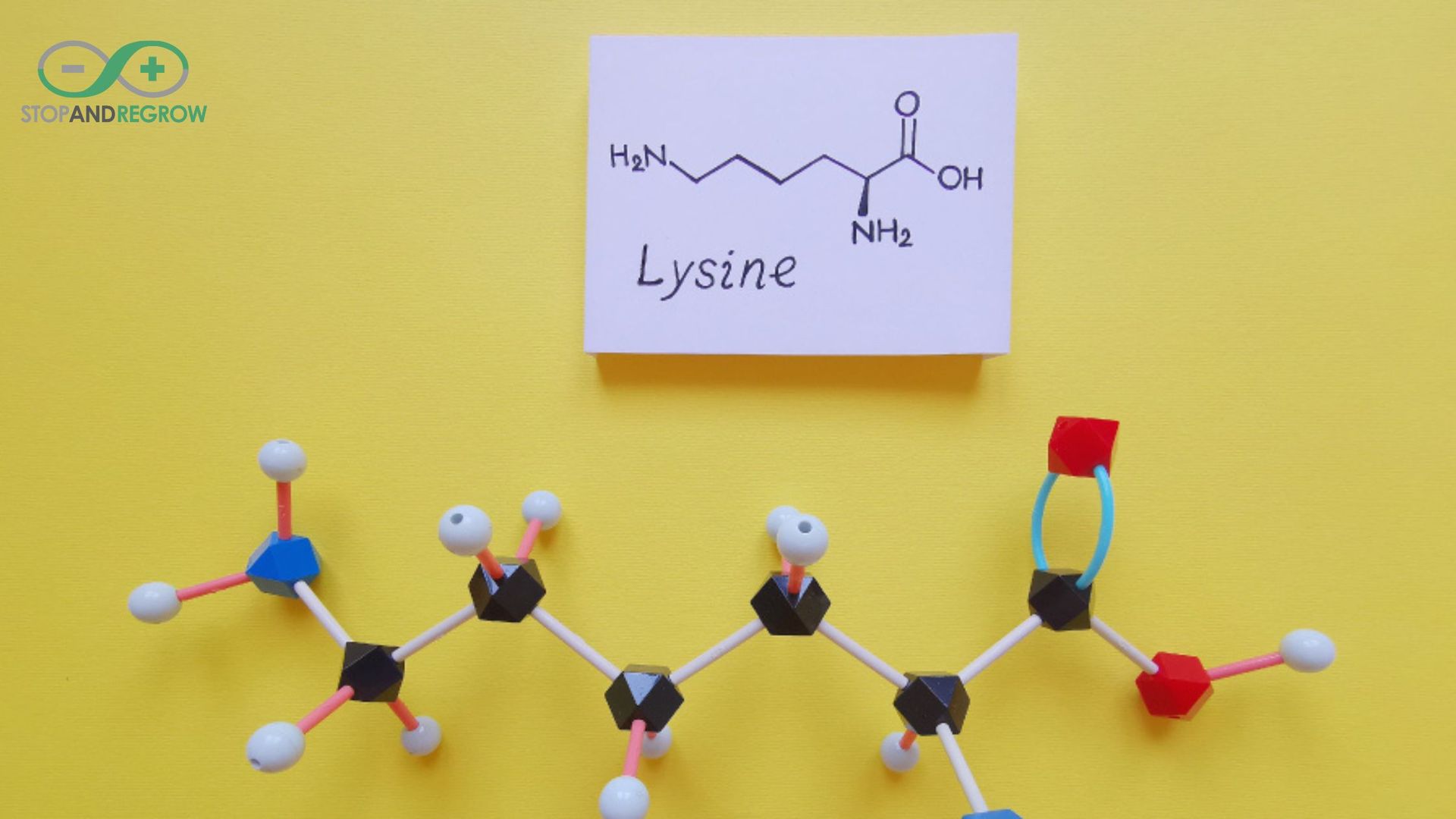
By Dr Robert Nettles
•
22 Sep, 2023
Are you on the lookout for effective solutions to foster hair growth and enhance your hair's general health? Your search ends here with Stop and Regrow's comprehensive guide on utilizing lysine for hair growth . Get ready to empower your journey to fuller, healthier hair. Understanding the Impact of Lysine on Hair Growth Lysine stands tall among essential amino acids that our bodies cannot generate naturally, necessitating intake through diet or supplements. This indispensable component, prominently featured in Dr. Nettles' formula, has garnered attention for fostering robust and vibrant hair growth. Let us delve deeper to understand how lysine is revolutionizing hair care: Collagen Production Collagen, fostered substantially by lysine, is pivotal in safeguarding hair’s strength and structure, thereby reducing the susceptibility to damage and breakage. Iron Absorption Lysine facilitates the optimal absorption of iron, a mineral vital for hair growth, averting hair loss linked to iron deficiency. Witness the Transformation: Lysine Hair Before and After Embarking on a hair care routine supplemented with lysine can potentially enhance the health and appearance of your hair. However, it is pivotal to note that while lysine can foster healthier hair growth, particularly if you have been deficient, it is not a direct treatment for the underlying causes of hair loss. Individuals have reported positive changes in their "lysine hair before and after" experiences, observing improvements such as: • Augmented hair thickness and volume • Enriched hair texture and luminosity • Fortified resistance against damage and breakage These transformations are an adjunct benefit of addressing the primary causes of hair loss through a comprehensive treatment strategy like that offered by Stop and Regrow, where lysine plays a supporting role in encouraging healthy regrowth after the root causes of hair loss have been identified and addressed. Incorporating Lysine in Your Hair Care Routine Wondering how to seamlessly infuse lysine in your daily routine? Here’s how: Diet Initiate by integrating lysine-rich foods such as lean meats, fish, dairy products, and legumes into your diet, nourishing your body with the requisite lysine. Supplements For a consistent lysine intake, especially if dietary sources prove insufficient, consider Dr. Nettles' holistic hair health and growth formula that accommodates lysine, facilitating an easy-to-follow hair care regimen. Zooming in on Dr. Nettles' New Formula: n/e - The Link to Reversing Hair Loss Spanning 25 years of meticulous research, Dr. Nettles and his diligent team have unveiled a proprietary blend of natural essential coFactors, encapsulated in a revolutionary formula termed “n/e,” denoting "nettles essentials." This blend emerges from a profound understanding of the indispensability of lysine and methionine, both essential amino acids integral to hair composition. Lysine Apart from being a fundamental building block for proteins constituting hair, lysine accelerates new cell growth, attenuates cortisol stress reactions that can inhibit healthy hair growth, and offers anti-inflammatory benefits coupled with enhanced immune responses. Methionine Methionine not only aids hair growth but also facilitates protein synthesis from consumed food, contributing to normal cellular and DNA functions, and reducing chronic disease vulnerability. Conclusion: Embarking on a Journey to Revitalized Hair with Lysine Lysine, with its dual role in collagen production and iron absorption, emerges as a powerhouse in your hair care toolkit. Through Stop and Regrow’s meticulously crafted formula, numerous individuals have reveled in the positive ramifications of lysine, witnessing significant enhancements in hair thickness, texture, and general health. As you venture into leveraging the potential of lysine for hair growth, remember that outcomes may vary across individuals. A holistic approach encompassing balanced nutrition, apt hair care, and guidance from hair care maestros like Dr. Nettles can pave the path to gratifying results. Embark on a journey to resplendent, healthy hair by harnessing the transformative power of lysine, the cornerstone of hair revitalization. Book your no-obligation free video consultation today to learn whether Stop and Regrow will work for you. We wont take you on as a client unless we can successfully regrow your hair.
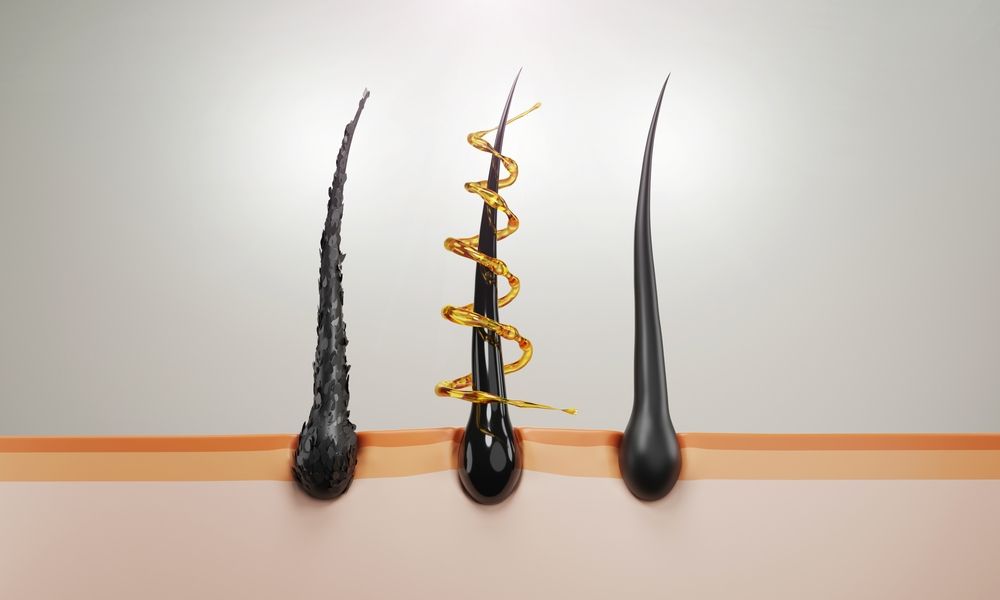
01 Aug, 2023
The battle against hair loss often zeroes in on a hormone called Dihydrotestosterone (DHT). Frequent queries like "How to Block DHT Molecules" and "Things That Block DHT" underline a widespread belief that simply blocking DHT is a magic bullet for hair loss. However, a fundamental understanding of biochemistry and physics challenges this concept, reminding us that nothing in the universe, including DHT, simply disappears or is blocked without consequences.
By providing your SMS number you opt in to receive occasional text messages from us. We will not ever sell or provide your data to third parties and you may opt out at any time.. Message and data rates may apply.. SMS Terms & Conditions
